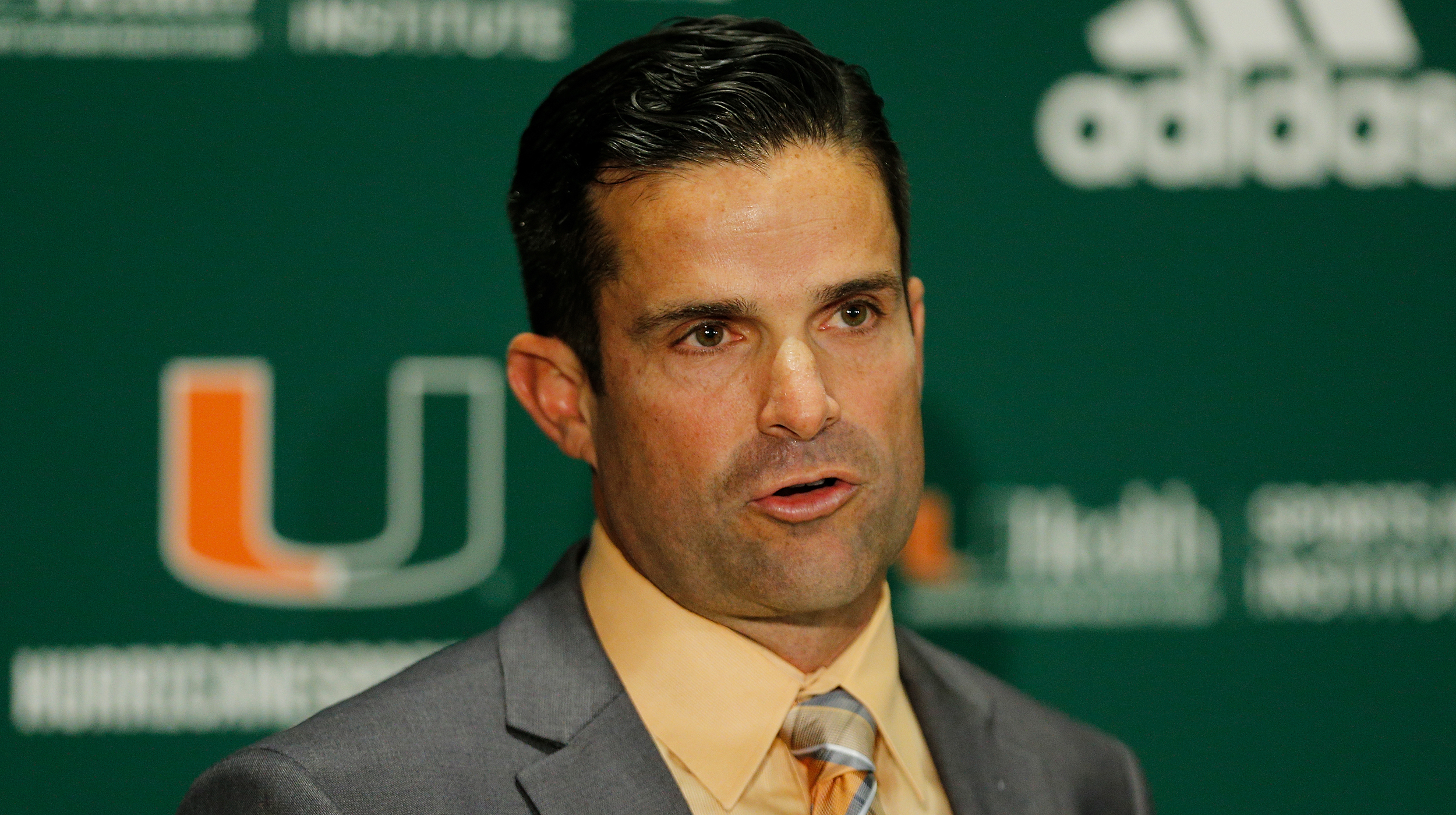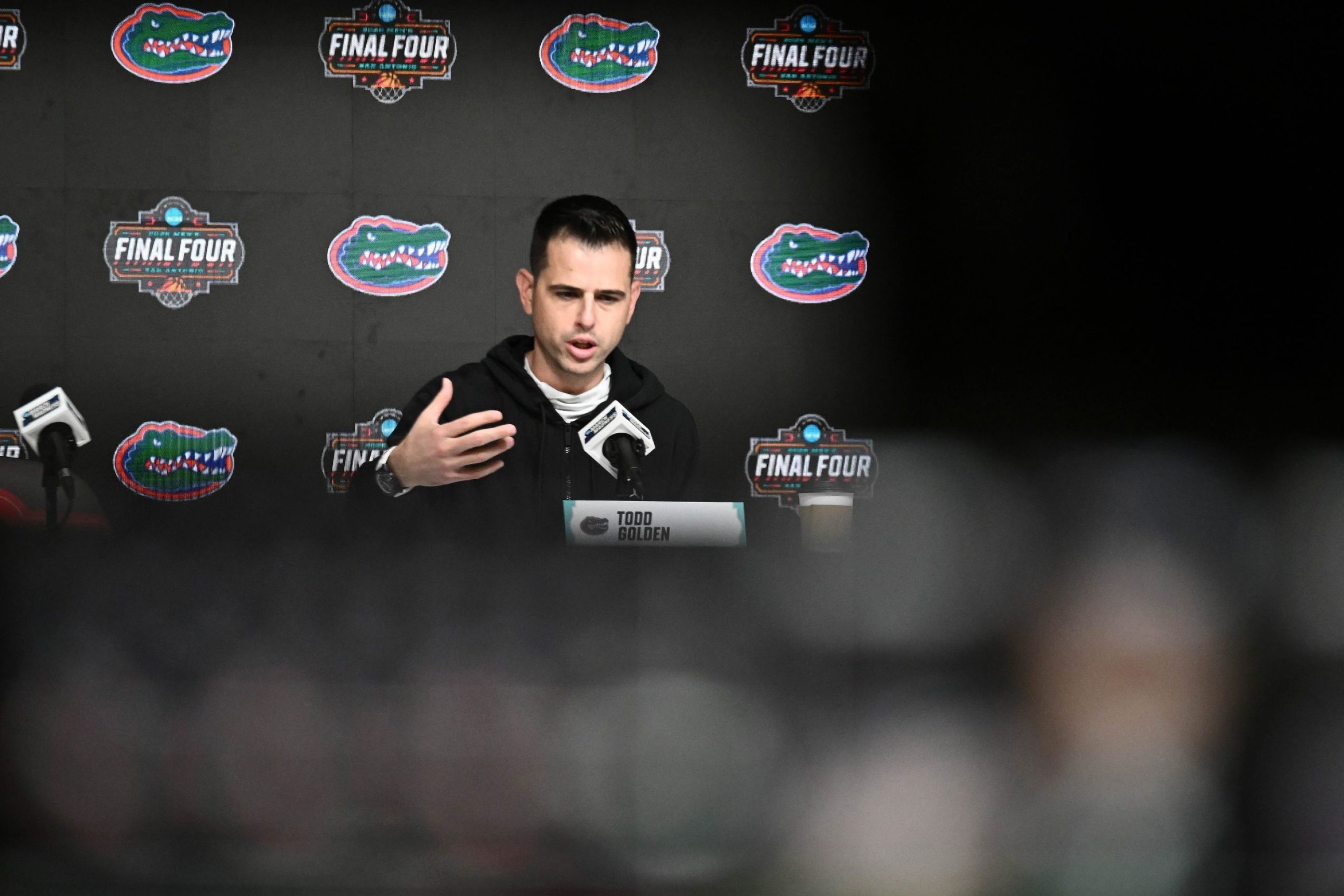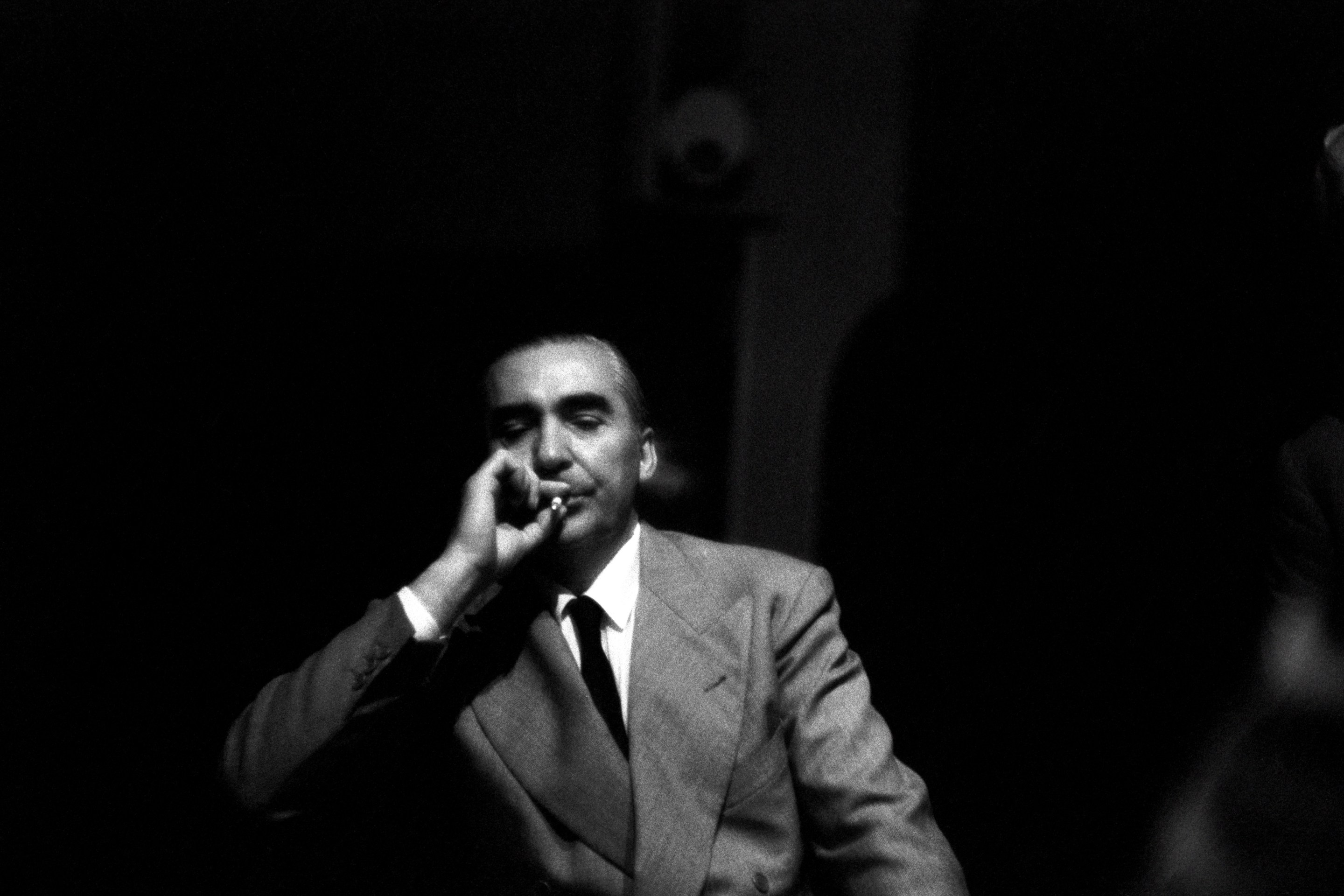Perhaps you are experiencing an urge to feel sorry for Manny Diaz. The former University of Miami football coach was finally put out of his misery on Monday morning, getting the boot from his hometown program after three middling seasons. The circumstances around the Hurricanes' latest coaching change were sketchy, to say the least, as the program spent a few days openly thirsted for Oregon coach—and former Hurricane—Mario Cristobal, all while Diaz hung in the wind until Monday.
To hear some college football journalists tell it, Miami has committed a grave injustice by letting their underwhelming coach wonder about his job security for a weekend. At Yahoo, Pete Thamel called the situation "cruel" to my fellow Miami Country Day School alum (go Spartans), saying that it was "the type of egregious mismanagement that happens when grand ambitions turn blind," referring to Miami's now-decades-long search for some long-gone prestige. USA Today columnist Dan Wolken called it "a terrible way to do this," in which "this" is, I suppose, a weekend's worth of doubtful discomfort. CBS Sports writer Barrett Sallee said Miami's decision was "absolutely disgraceful." You get the picture.
None of this should have come as a surprise to Diaz, though. Sure, it's a bit rough to not-so-privately hunger for a new coach while your old coach is still employed, but Diaz was hired to win football games, and he was accordingly average at that role. In three seasons at Coral Gables, Diaz won 21 games and lost 15; he also lost both bowl games he got a chance to coach, and only finished ranked once ... at No. 22 ... during the COVID-plagued season last year. Cristobal is a better coach, and his South Florida ties have made him a good recruiter in the area.
Nobody should feel bad for Diaz, though, and not just because everyone who participates in and benefits from college football's labor exploitation does so with unclean hands. Diaz is unworthy of sympathy because he himself has used the system to his advantage, perhaps in ways that are even more egregious than what Miami did to him. Back in December of 2018, Diaz accepted the head coaching job at Temple, and immediately went to work in making changes at the program, hiring two assistants and a strength coach, the latter of which would eventually follow him back to Miami. Two weeks after being hired by Temple, Diaz was gone, and by Jan. 2, 2019, he was introduced as the new head coach at Miami, the school where he had built up his resume as a relatively successful defensive coordinator from 2016 to 2018. Remember the Turnover Chain? That was under his tenure. Defending Diaz's decision to screw over Temple is possible, as former Canes coach Mark Richt retired out of nowhere and Diaz wanted to take over his dream job, but he still left a school that bet on him hanging after a mere fortnight.
It should be impossible to feel bad for a college football coach, all of whom make millions off the backs of unpaid players. It is particularly difficult to do so for Diaz. It's possible to try, given the reports, which I can only assume were leaked by Diaz's camp, that he was still on the recruiting trail for the Hurricanes even as his fate hung in the balance on Sunday.
That requires a narrow view of what college football is, though, and one that clings to the idea that it is a net good, and that everyone should and will act accordingly. It's not, and hasn't been for a long time, if ever. It's a business, and a particularly nasty one, doubly so at the biggest and most famous schools.
$8 million to buy out Manny Diaz
— Chris Vannini (@ChrisVannini) December 6, 2021
$9 million to buy out Mario Cristobal at Oregon
$8 million for Cristobal’s salary
Miami has never come close to paying this kind of money. This is a complete shift in athletics and football support.
Diaz knew what he signed up for when he went to Miami. This is a school living off of the fumes of bygone eras in which "The U" was relevant and they weren't losing bowl games to Louisiana Tech. As a Miami native and Hurricanes fan from childhood, I can say with firsthand experience that the gap between the school's self-image and its actual results since the 2003 Fiesta Bowl only grows with each year.
To sign up to coach Miami, in the way that Diaz did, is to have complete knowledge that it could happen to you as well. Did Miami handle this changing of the guard correctly? No, and it's funny to laugh at the school as it grasps at straws. But the overdramatic hand-wringing over Miami's treatment of Diaz is about three shades too far, given the state of this sport and the particulars of those involved. Diaz knifed Temple in order to get what he wanted, and now he's dealing with the results of his own failure, which are a bit of public embarrassment and a fat $8 million check to sit at home. The wheel of college football rolled over one coach today, and it won't stop for the next one.






